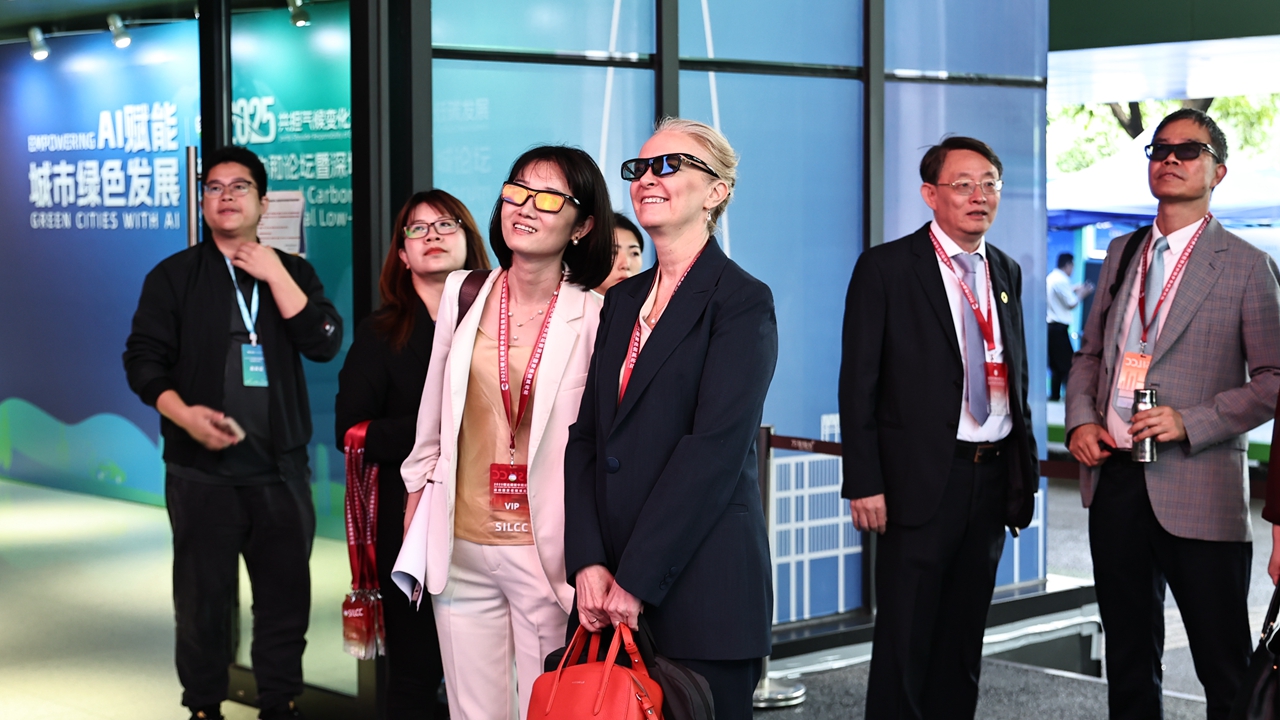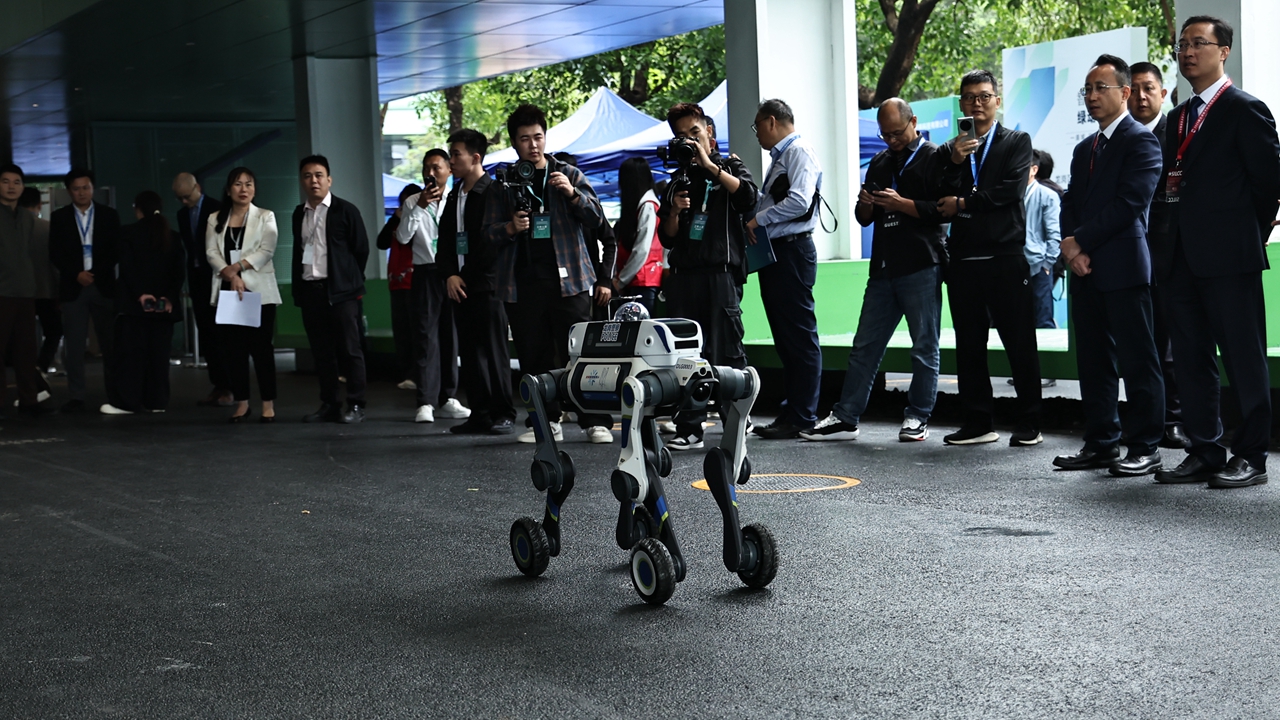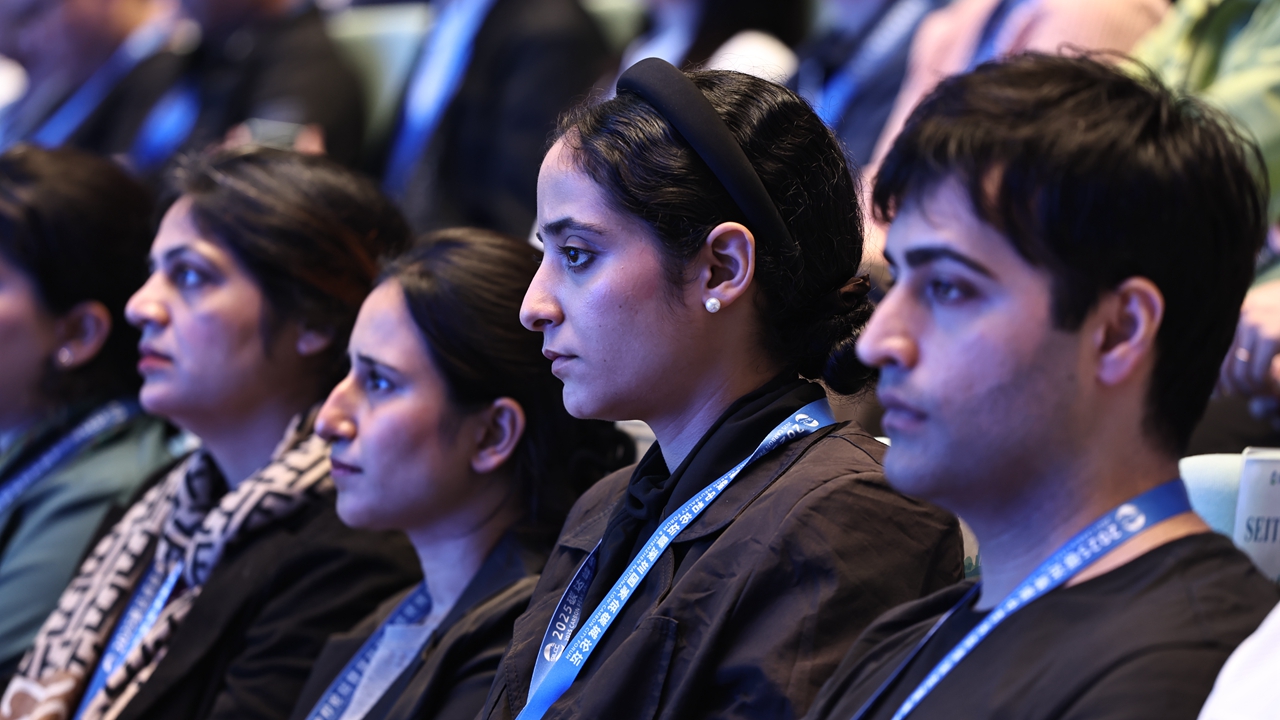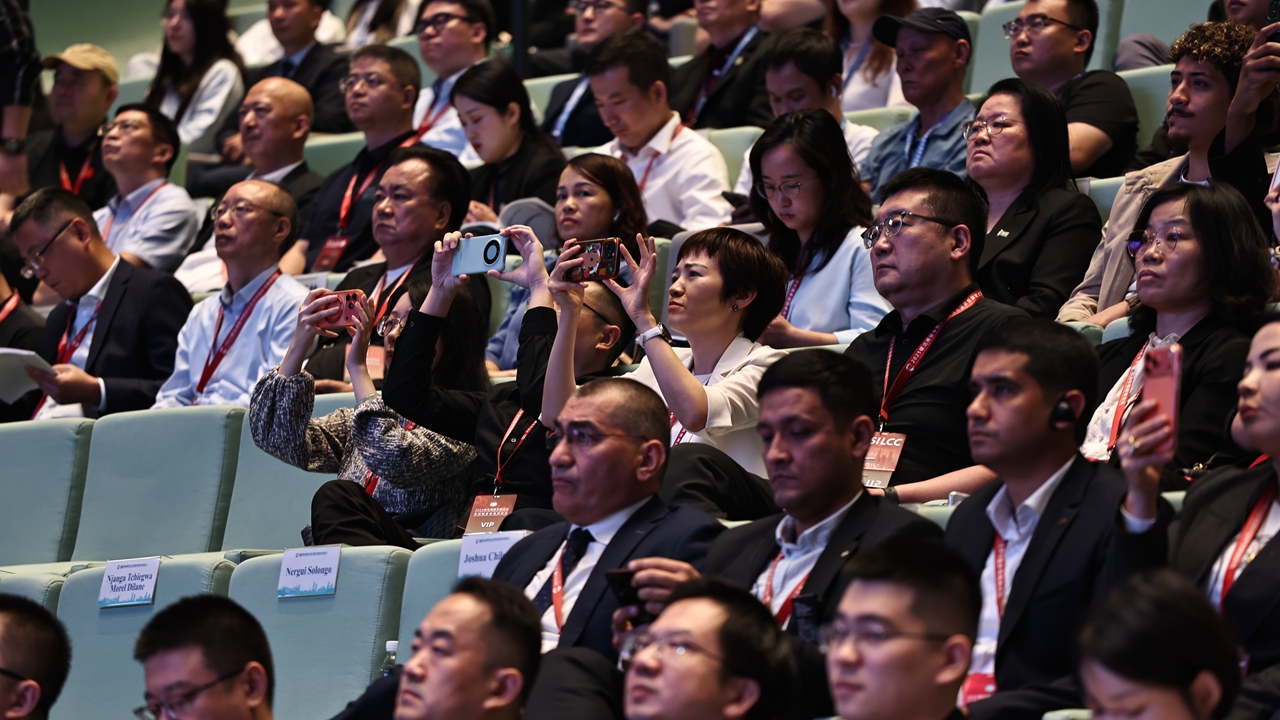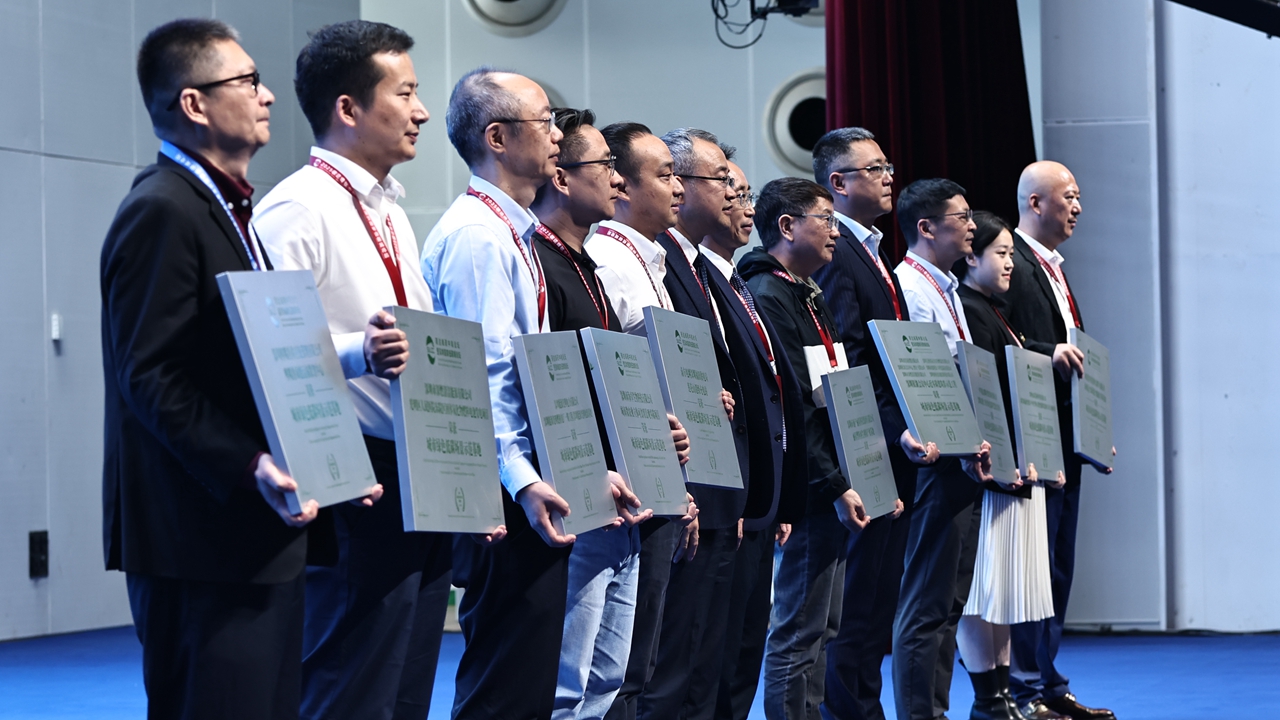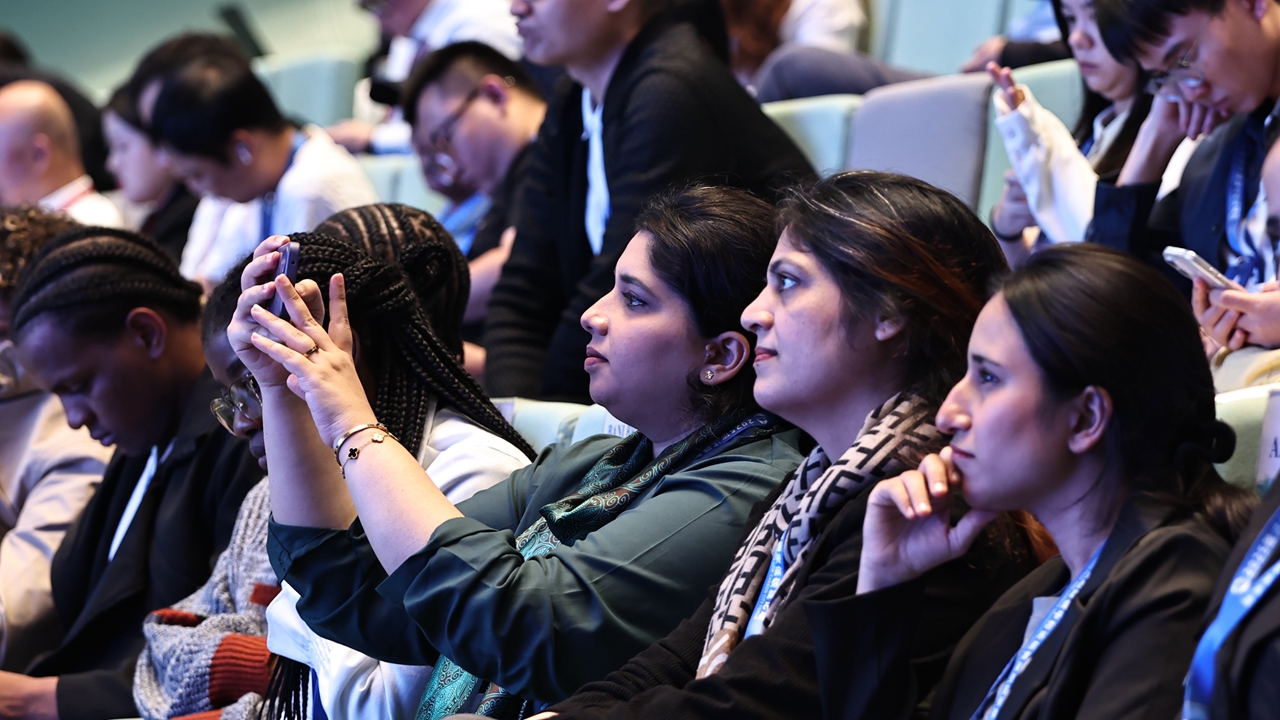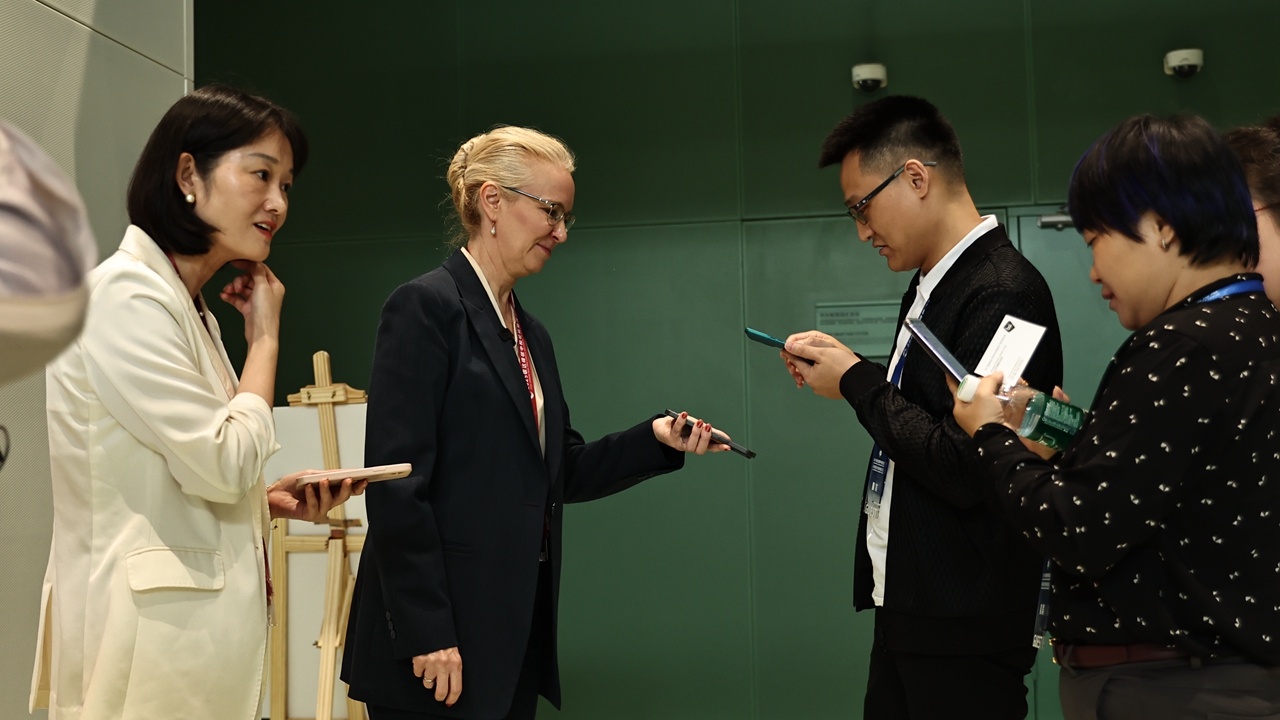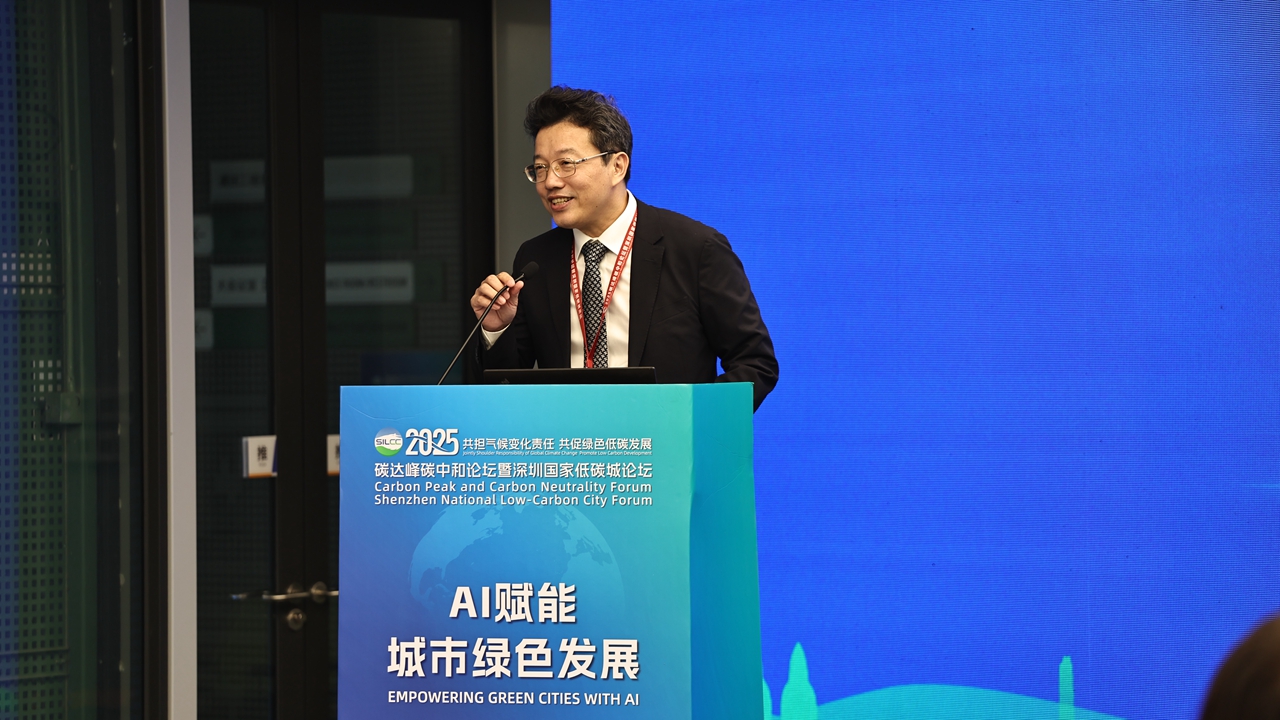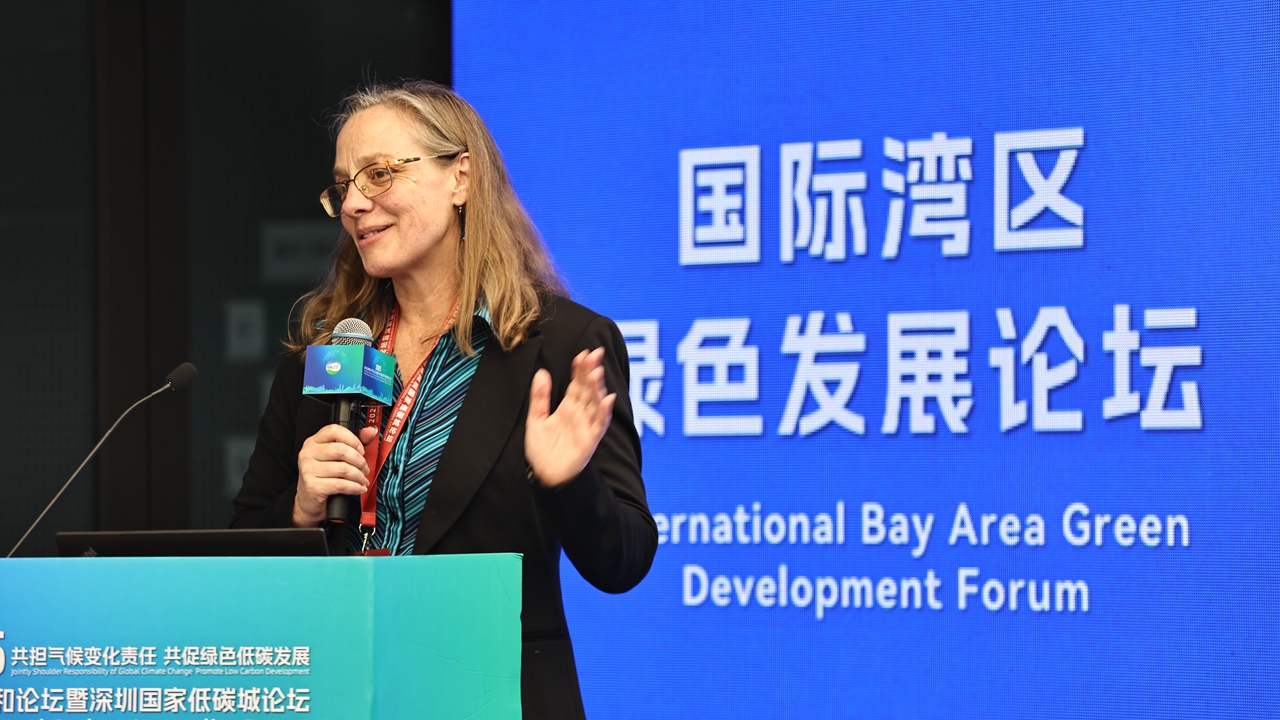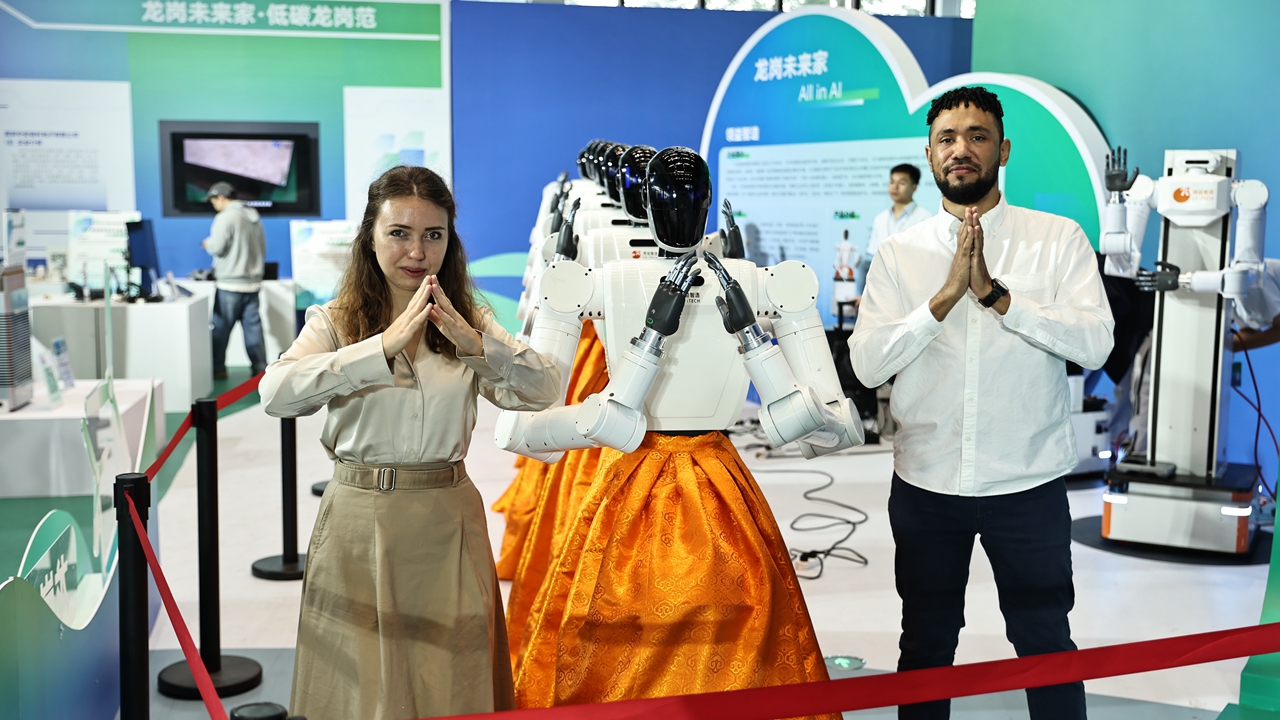The 2025 Carbon Peak and Carbon Neutrality Forum & Shenzhen National Low-Carbon City Forum commenced at the Shenzhen International Low-Carbon City on Oct. 28.
This year's forum is hosted by the Shenzhen Municipal People's Government and co-organized by the Shenzhen Municipal Development and Reform Commission, the Shenzhen Municipal Bureau of Ecology and Environment, and the Longgang District People's Government. Following a "1+6" model, the forum features one opening ceremony and 14 events across six sectors. The theme of this year's forum is "AI Empowers Urban Green Development."
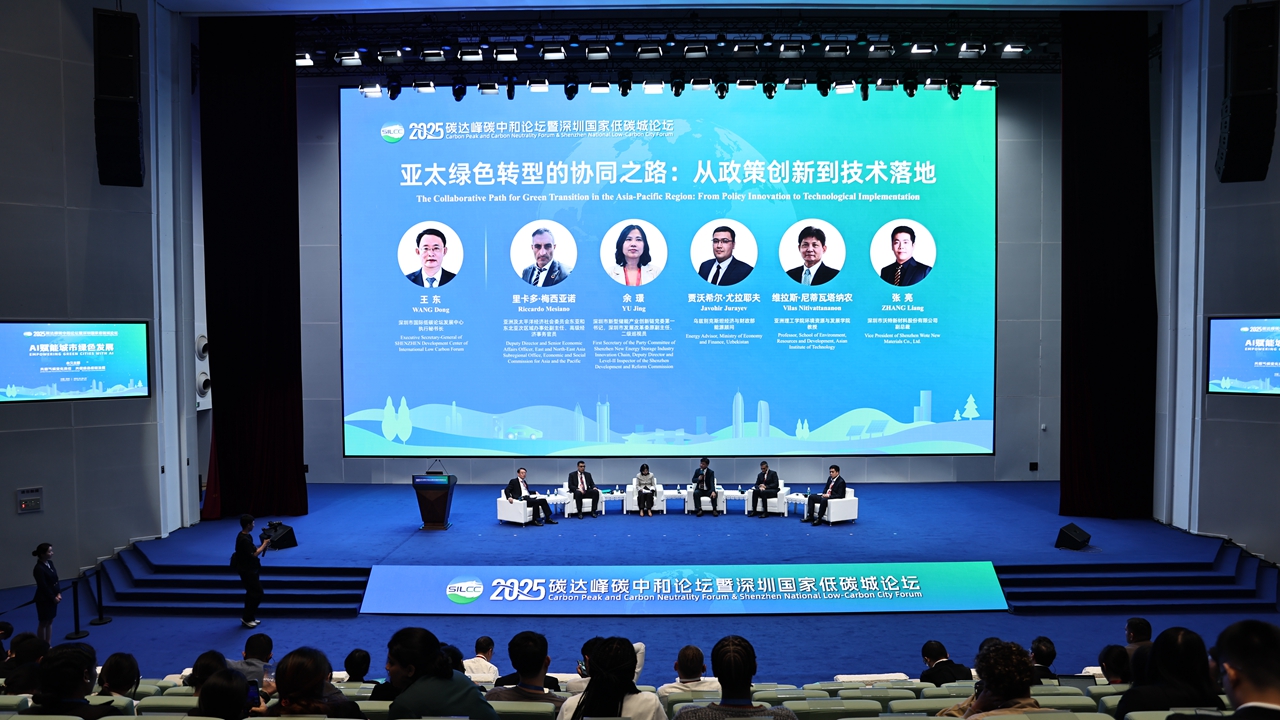
The 2025 Carbon Peak and Carbon Neutrality Forum & Shenzhen National Low-Carbon City Forum commences yesterday. Photos by Liu Xudong except otherwise stated
At the forum's opening ceremony, Qin Liming, deputy director of the Guangdong Provincial Development and Reform Commission, stated in his address that Guangdong is spearheading efforts with carbon peak and carbon neutrality initiatives, deepening the ecological development of a "Green and Beautiful Guangdong," accelerating the construction of a modern industrial system, and achieving positive results in green and low-carbon development.
Zhang Hua, vice mayor of the Shenzhen Municipal People's Government, emphasized that as a window of China's reform and opening-up and a city of innovation, Shenzhen is steadfastly pursuing a high-quality development path that prioritizes ecology, emphasizes conservation and intensive resource use, and promotes green and low-carbon practices. With pioneering and demonstrative standards, Shenzhen is taking the lead in exploring the establishment of a dual-control system for carbon emissions, systematically advancing the green and low-carbon transformation of energy, vigorously promoting new energy vehicles, building globally leading green building clusters, and actively exploring sustainable development pathways for mega-cities.
Green achievements
A series of major achievements in the green and low-carbon field were released during the opening ceremony Oct. 28. Among them, the "2025 Shenzhen Green and Low-Carbon Development White Paper” was released. It showcases Shenzhen's actions and accomplishments in green and low-carbon development across four key areas: carbon reduction, pollution control, green expansion, and economic growth. Additionally, the release of carbon footprint-related achievements, such as the "Carbon Footprint Labeling Certification Work Results in the Guangdong-Hong Kong-Macao Greater Bay Area" and the "Guangdong-Hong Kong-Macao Greater Bay Area Electrochemical Energy Storage Carbon Footprint White Paper," marks a significant step forward for the Greater Bay Area in supporting enterprises in going global, exporting rules and standards, responding to international green trade rules, and promoting regional collaborative carbon reduction.
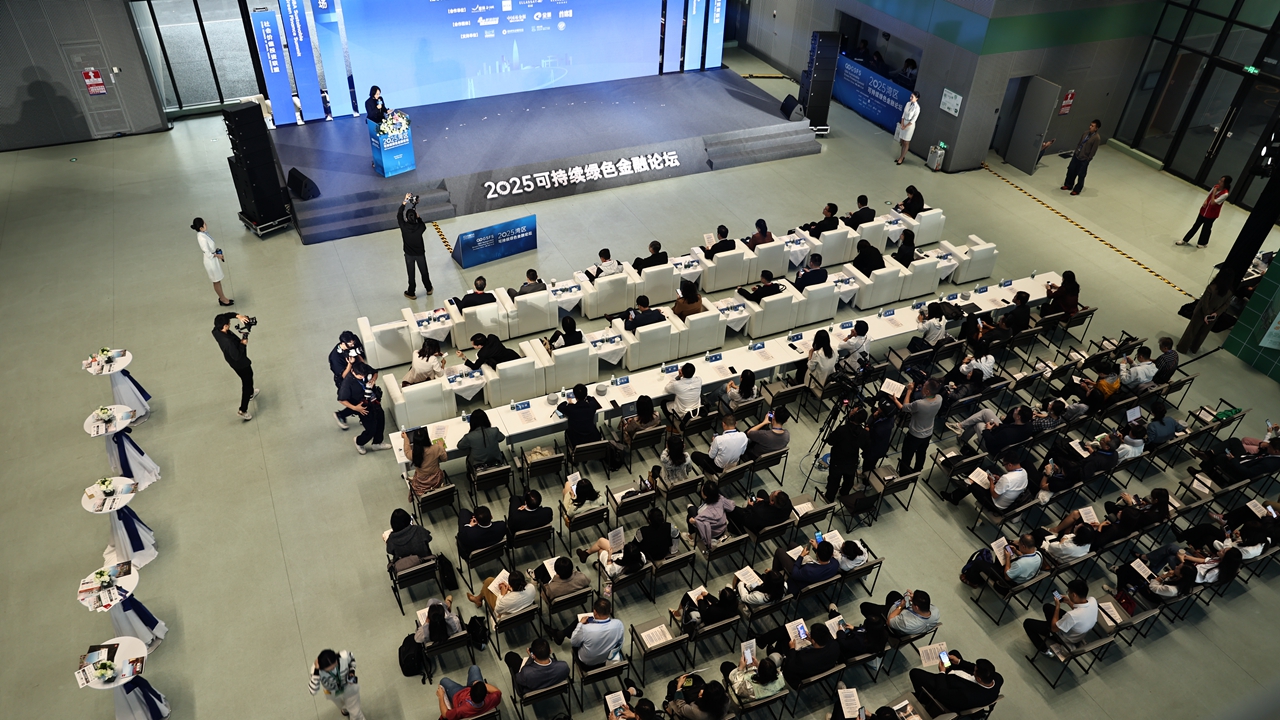
Attendees attentively listen to the speeches of the forum.
During the ceremony, 10 projects, including the Lianhua Hill Super Charging Station, the Lixing Plastic Recycling Industrial Base, and the Urban Micro-Agriculture Three-Dimensional Edible Landscape Zero-Carbon Project, were recognized as 2025 Urban Green and Low-Carbon Scenario Demonstration Bases. Twelve companies, including BTR New Material Group Co. Ltd., China Resources Land Holdings Ltd., and Shenzhen Mindray Bio-Medical Electronics Co. Ltd., were honored as 2025 Shenzhen ESG Practice Pioneer Enterprise Typical Cases. These recognitions highlight the new achievements of enterprises in advocating green and low-carbon development concepts, fulfilling corporate social responsibilities, and optimizing corporate governance.
Expert insights
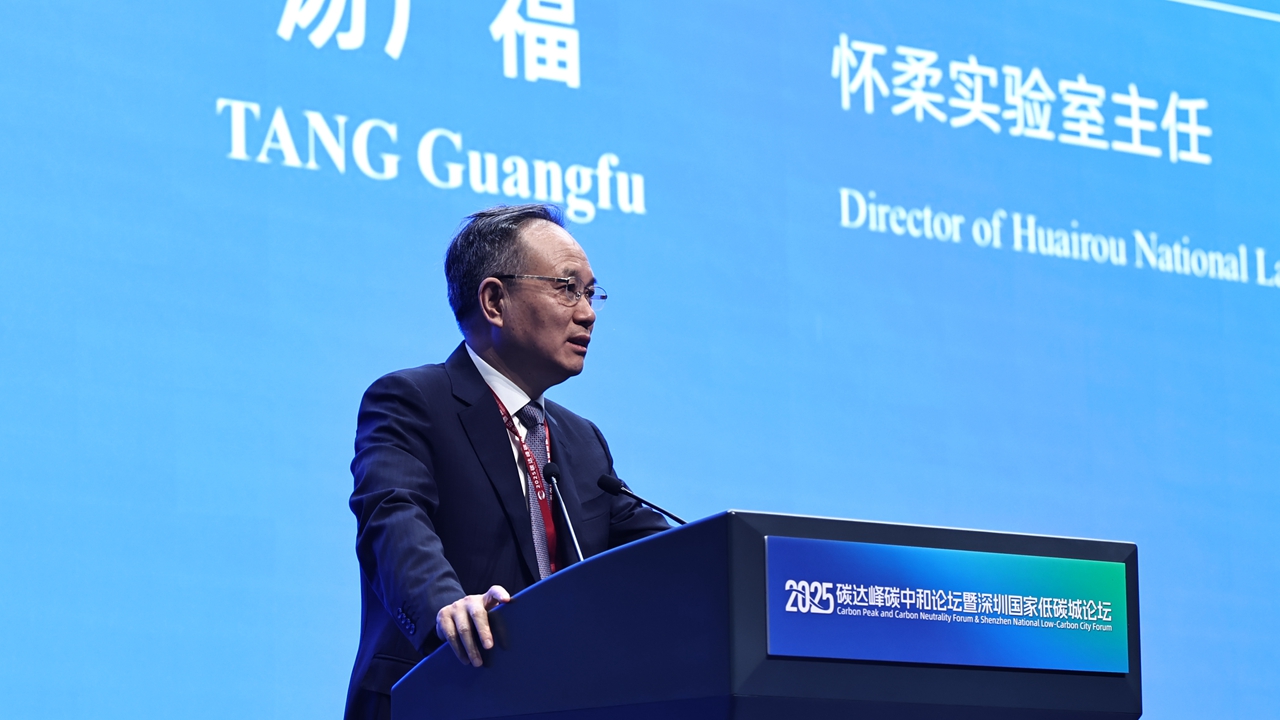
Tang Guangfu points out that China's energy development still faces challenges in his speech.
During the keynote speech, Tang Guangfu, director of Huairou National Laboratory, delivered a speech titled "New energy system establishment pathway and key technologies." He pointed out that China's energy development still faces challenges such as immense demand pressure, multiple supply constraints, and limited flexible regulation resources. The main pathways for building a new energy system include vigorously developing wind and solar power, advancing flexible coal power, deepening the transformation and upgrading of the power system, promoting hydrogen energy development, and synergistically developing other energy sources. When discussing key and cutting-edge technologies for the new energy system, Tang recommended focusing on breakthroughs in key technologies for offshore wind power and new photovoltaic systems, flexible coal-fired power generation and carbon capture, utilization, and storage (CCUS), new grid forms and new power equipment, hydrogen energy and new energy storage, and supply-demand interaction and digital technologies.
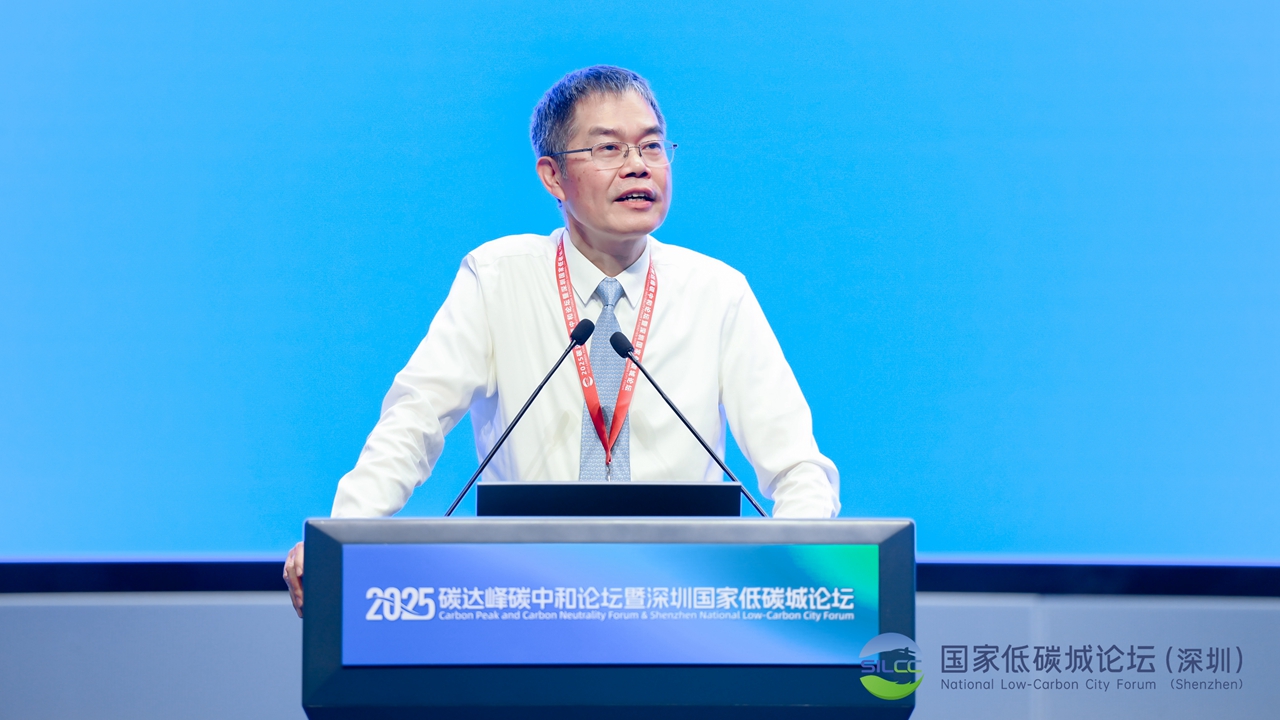
Cheng Huiming delivers a speech. Courtesy of event organizer
Cheng Huiming, director and principal researcher of the Institute of Carbon Neutrality Technology at the Shenzhen Institute of Advanced Technology, Chinese Academy of Sciences, emphasized in his keynote speech "Green Technologies Outlook towards Neutrality in Megacities" that "urban carbon emissions are key to achieving the dual carbon goals." To advance urban carbon neutrality, special attention must be paid to the utilization of new energy, the transformation of low-carbon industrial processes, the construction of low-carbon or zero-carbon buildings, and the development of green transportation.

Tatiana Schmollack-Tarasova gives a keynote speech.
Tatiana Schmollack-Tarasova, managing director of British Standards Institution (BSI) China, delivered a speech from the perspective of international standards, focusing on the theme "Shaping the NetZero Pathway for Global Impact through International standards." Her speech provided valuable insights for governments and enterprises to address global green regulatory challenges and support Chinese companies in going global.
In the high-level dialogue session, centered on the theme "The Collaborative Path for Green Transition in Asia-Pacific Region: From Policy Innovation to Technological Implementation," participants included Riccardo Mesiano, deputy director and senior economic affairs officer of the East and North-East Asia Subregional Office of the Economic and Social Commission for Asia and the Pacific (ESCAP); Yu Jing, First Secretary of the Party Committee of Shenzhen's New Energy Storage Industry Innovation Chain; Javohir Jurayev, energy advisor to the Ministry of Economy and Finance of Uzbekistan; Vilas Nitivattananon, professor at the School of Environment, Resources, and Development, Asian Institute of Technology; and Zhang Liang, vice president of Shenzhen Wote Advanced Materials Co. Ltd. They engaged in a roundtable discussion.
More photos:
